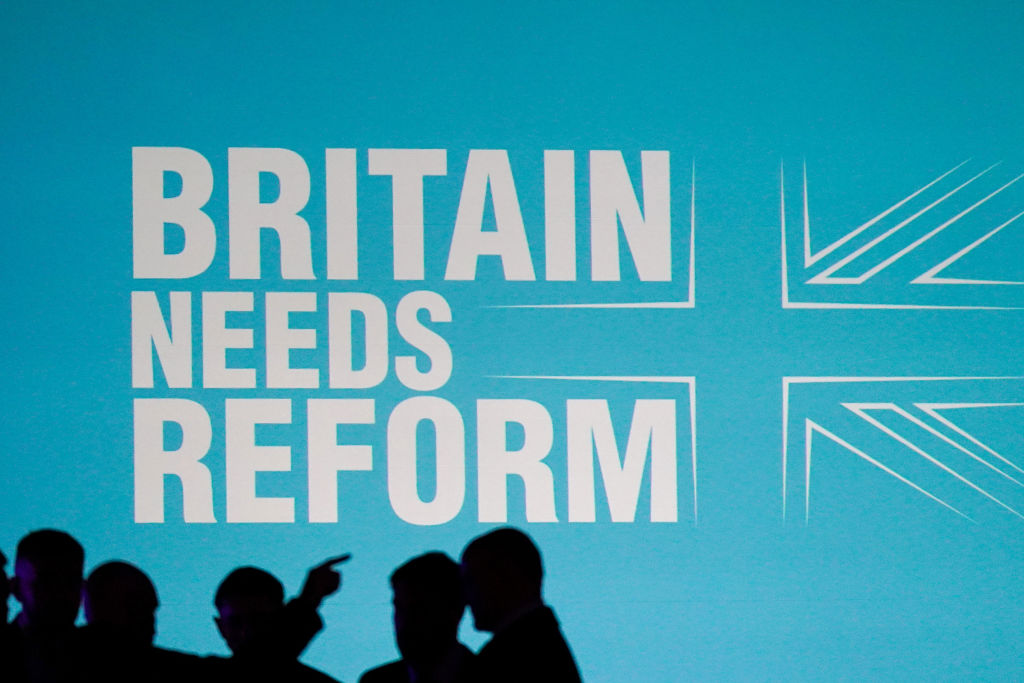Last week, John Power reported on Labour’s alleged ‘dark arts’ strategy: a cynical ploy to damage Nigel Farage and his allies not through debate, but through reputational sabotage. As a target of such smears for many years, I was not hugely surprised to see my name mentioned in the piece. I can attest to the venom of the attacks on Reform – in stark contrast to the ‘kinder, gentler politics’ once promised from Labour.
We should expect robust debate where ideas clash, but instead what we often encounter is a reliance on smears and innuendo. In this week’s Spectator, James Heale notes that my lawyers have written to Labour. Downing Street sources have reportedly denied the existence of any new ‘attack team’ in No. 10 with the remit of challenging Reform. But key questions remain unanswered.
In recent weeks, anonymous online accounts and attack blogs have engaged in a sophisticated and targeted disinformation campaign against me. Following the allegations in The Spectator last week, some of these soon vanished. Who was behind them? Where did the money come from to fund various X accounts? And what, exactly, are the limits of Labour’s ‘opposition research’ – better known as the ‘dark arts’?
The emergence and subsequent disappearance of these accounts come just as Labour ramped up its attacks on Reform UK. Over the weekend, Nigel Farage has been subject to an unrelenting barrage of slime from the Labour party’s official X account, stating that he would ‘put women and girls at risk’ because of his position against the Online Safety Act. Peter Kyle, the Science Secretary, previously suggested that Farage was on the side of Jimmy Savile. Just how low is Labour prepared to go?
My association with Nigel Farage, exacerbated by my family’s financial support of Reform UK, has painted a bullseye on my back – and theirs. The assaults are manifold: in 2016, at the Republican National Convention supporting Donald Trump, I was arrested on allegations of a money-laundering conspiracy from my finance days, when I was 20. The tabloids had a field day, transforming it into a sensational saga of intrigue and excess prompting scurrilous claims of Russian interference.
There were farcical allegations of illicit political financing in Montenegro, where I have lived for years, and lurid tales of investigations and arrests, along with whispers of shadowy business dealings with gangsters and despots. These tales disintegrate under scrutiny – but they were never intended to be proven. They are designed to depict me as a Bond-esque rogue.
What’s changed is how these attacks are amplified. Anonymous social media accounts use generative AI tools like ChatGPT and X’s Grok to spread misinformation. By feeding these models with attack blogs and unreliable sources – often of their own creation – they generate misleading responses, auto-translate them, and inject them into the feeds of British journalists. This manipulation plays on well-known vulnerabilities of large language models, which can reflect the assumptions of their prompts and dream up plausible-sounding falsehoods. It is digital defamation at scale.
The personal toll is profound. They imperil my petition for a US presidential pardon, following my 2017 plea deal, and have necessitated a 24-hour security team and an army of libel lawyers and investigators amid intimidation that endangers my family’s safety and privacy.
At the heart of this campaign lies a concerted effort to discredit me and Geostrategy, my global polling and strategy consultancy. Critics brand it a ‘shady’ vehicle for ‘dark money’, claims which are not just inaccurate, but malicious. Our polls, which align with other respected outfits, showing, for instance, majority US support for a free Ukraine, are conducted to the highest standards, belying claims of pro-Russia bias. Yet activist groups, colluding with the press, push such narratives without evidence.
This approach, reminiscent of efforts against figures such as Trump, risks undermining liberal democracy by failing to accommodate dissenting voices within the system, potentially leading to greater instability. If we aim to restore faith in our institutions, we must return politics to its proper form: a competition of visions and ideas, rather than a battle of character assassination. Our democracy deserves civility, integrity and the courage to engage in open debate.







Comments